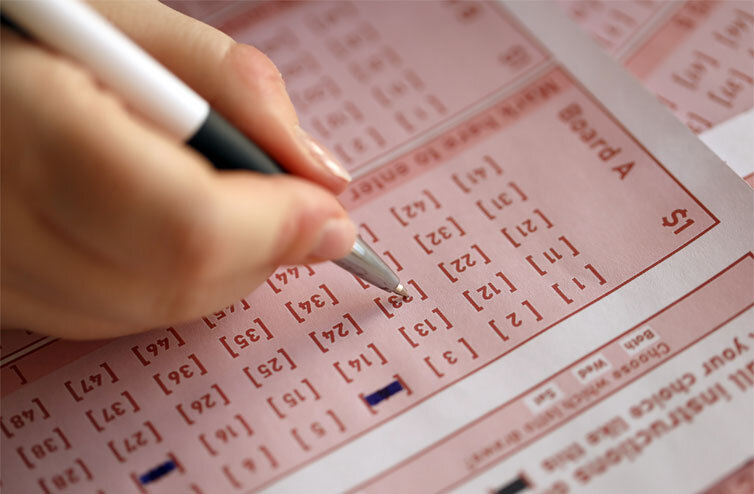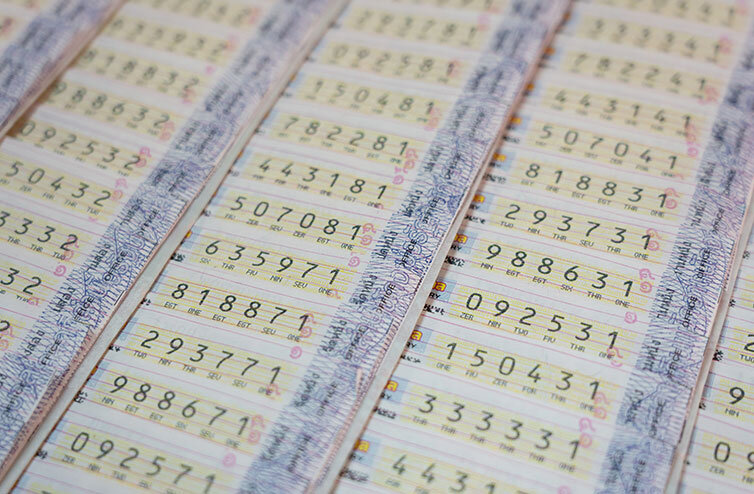Are lottery results truly random? Uncovering myths and facts
In this post, we will explore the science behind lottery results, debunking myths and analyzing the real possibilities of predicting winning numbers.
The lottery, that exciting game of chance that has captured the imagination and dreams of millions of people around the world. The charm of the lottery lies in its unpredictability, in that small but irresistible chance that fortune will smile on us and turn us into overnight millionaires. But how much do we really know about the randomness of lottery results?
Among lottery players, there are all kinds of myths and predictions about winning numbers. Some believe in the existence of hidden patterns or in the supposed "good luck" of certain numbers. Others, on the contrary, argue that each drawing is a completely random and unpredictable event. But what does science have to say about it? According to a publication in Davidson College, the chance of a number repeating in a drawing is very small, around 3 to 4%. However, the same probability exists for any other number.
In addition, questions arise about the true nature of randomness in the lottery: are the results of lottery drawings truly random? Is it possible to predict, even partially, the winning numbers? A thread on Reddit raises questions about whether some numbers appear more frequently than others in the short term. While a Fox News investigation reveals how a statistician discovered a secret code behind lottery tickets.
In this post, we will explore the science behind lottery results, debunking myths and analyzing the real possibilities of predicting winning numbers. We will discuss the concepts of "cold numbers" and "hot numbers," and evaluate realistic strategies to increase the odds of winning. In the end, we hope this knowledge will help you enjoy the lottery game more, without falling into unfounded expectations of accurate predictions.
Are lottery drawings truly random?
After dusting off some myths and superstitions in the intro to this post, it's time to dive into the science of lottery drawings. How are these numbers really drawn, can they be truly random? The short answer is yes. Lottery drawings are designed to be as random as possible, and here's how.
Let's take the Powerball drawing in the United States as an example. In each drawing, two lottery ball machines are used: one for the main numbers and one to select the Power Ball. Despite their appearance similar to air-mix machines, all machines used in a Powerball drawing are gravity selection machines. The balls begin their journey in a series of clear tubes above the machine's drum. When the drawing begins, these balls are released into the drum, where the force of gravity randomly mixes them together before they are finally selected for the drawing.
Now, with so many balls in play, it might seem that there is a high probability that a number will be repeated. However, this is highly unlikely. In fact, there is a very small probability, in the neighborhood of 3 or 4%, that a number will repeat in a drawing, as we mentioned earlier. Remember, each ball has an equal chance of being selected, so repeating numbers are simply a random coincidence and not a predictable pattern.

At this point, you may be wondering: if the draws are so random, is it possible to accurately predict lottery numbers? The answer, at least in terms of predicting the exact numbers that will be drawn, is a resounding no. Lottery games are truly random, and this inherent randomness results in long-term mathematical predictability, but not the ability to predict the exact numbers that will be drawn in the next drawing.
So, while you might try to look for patterns in past lottery numbers, the truth is that each drawing is independent and not influenced by previous drawings. Therefore, any number has the same probability of being selected, regardless of when it was last selected.
In short, lottery drawings are truly random, and while the idea of predicting winning numbers may be tempting, the reality is that there is no sure way to do so.
So, why do people talk about patterns and hot and cold numbers in the lottery?
If you've ever studied lottery results in search of a winning formula, you may have noticed certain apparent patterns. Some numbers seem to appear more often than others, and some people believe they can predict the next winning numbers based on these patterns. But are these patterns real, or are they just random coincidences?
In reality, the patterns that some people believe they see in lottery results can be attributed to chance or biased selection of historical data. This is because lottery drawings are designed to be as random as possible. Each number has the same probability of being selected in every drawing, regardless of how many times it has appeared in the past. Therefore, any pattern that seems to emerge from lottery results is probably the result of pure chance.
This brings us to the concepts of "cold numbers" and "hot numbers". Cold numbers are those that have not been selected in a long time, while hot numbers are those that have appeared more often in recent draws. Some lottery players believe that the cold numbers are "due" to be selected, while others prefer to bet on the hot numbers in the hope that their streak will continue. However, the reality is that each lottery drawing is a separate event and history has no impact on the odds of future numbers.
The illusion of patterns in lottery results is explained by the Law of Large Numbers. This law states that, given a sufficiently large number of trials or draws, all numbers will have approximately the same number of appearances. Therefore, although in the short term it may appear that certain numbers appear more than others, in the long term, all the numbers will even out. So, while you can use the hot and cold numbers as you wish, you may simply end up with one of the millions of possible combinations.
In summary, while apparent patterns and hot and cold numbers are interesting concepts, they offer no real advantage in winning the lottery. Remember, each drawing is a random, independent event, and each number has the same probability of being selected, no matter how many times it has appeared in the past. So next time you play the lottery, pick your numbers with fun and don't worry too much about patterns and predictions.
But, is there really any way to increase your odds of winning in the lottery?
In our ongoing quest to unlock the mysteries of the lottery, a frequent question is whether there is an effective strategy to increase our chances of winning. The short answer is yes, but not in the way you might think. As we discussed earlier, every number in a lottery drawing has an equal chance of being selected, so there is no secret formula for predicting winning numbers. However, there is one basic principle that can increase your chances: play more bets.
According to several lottery experts, the best way to increase your chance of getting a winning ticket is to simply buy more tickets. Although the probability of winning the lottery in general is low, the more tickets you have, the more likely it is that one of these tickets will be a winner, since you will basically be playing with more numbers. But, obviously, this can be costly if not handled carefully.

Playing it smart
One solution to this problem is to use optimized mathematical formulas to play multiple bets effectively without spending a lot of money. At Lottofy, we have previously talked about our optimized formulas or super formulas, equations that use complex mathematical calculations to optimize number selection and minimize costs. We recommend you to read our article about how optimized formulas work if you want to know a little more about how they work and how to use them in your bets.
Multiple betting and lottery syndicates
Another commonly employed strategy is to play in lottery groups or 'syndicates'. In these groups, all members contribute a 'stake' (something like a quota or a share of the group), at a relatively low cost. With all the shares contributed by the group members, as many bets as possible are purchased. If there are prizes, the money is divided equally among everyone in the group. In this way, you can accumulate a large number of tickets without spending too much of your own money.
In summary, while there is no magic formula for predicting winning lottery numbers, there are strategies to increase your chances of winning. Whether it's playing more bets, using optimized formulas or joining a lottery group, in all these cases you will be participating with more bets.
Conclusions and call to action
We have traveled an interesting and informative path throughout this blog, unraveling the myths and realities of lottery randomness. We have learned that lottery results are truly random and that, while there are apparent patterns, these can be attributed to chance or biased selection of historical data. We have also explored how we can increase our chances of winning in the lottery by playing more bets and using effective strategies.
It is important to emphasize that the lottery is, first and foremost, a game. A game that should be enjoyed without setting unrealistic expectations of accurate predictions because, as we have unraveled, regardless of whether we pick our own numbers or not, the odds of winning remain the same.
So what can we do with all this information? The answer is simple: play responsibly. As we have seen, the lottery is a game of chance and, although there are strategies to increase our chances, none guarantee a sure win. Therefore, we must play with moderation, always within our possibilities and without putting our financial stability at risk.
Now, we invite you to take action. Try the strategies we have mentioned in this blog, such as playing more bets and using optimized mathematical formulas. Feel free to join lottery groups to accumulate more tickets without having to spend so much money. And above all, enjoy the game. The excitement of waiting for the results, the adrenaline of seeing the numbers come up one by one, that's what makes the lottery special.
Remember, an unexpected win can be exciting, but the real value is in the journey. So, play, have fun and good luck!





